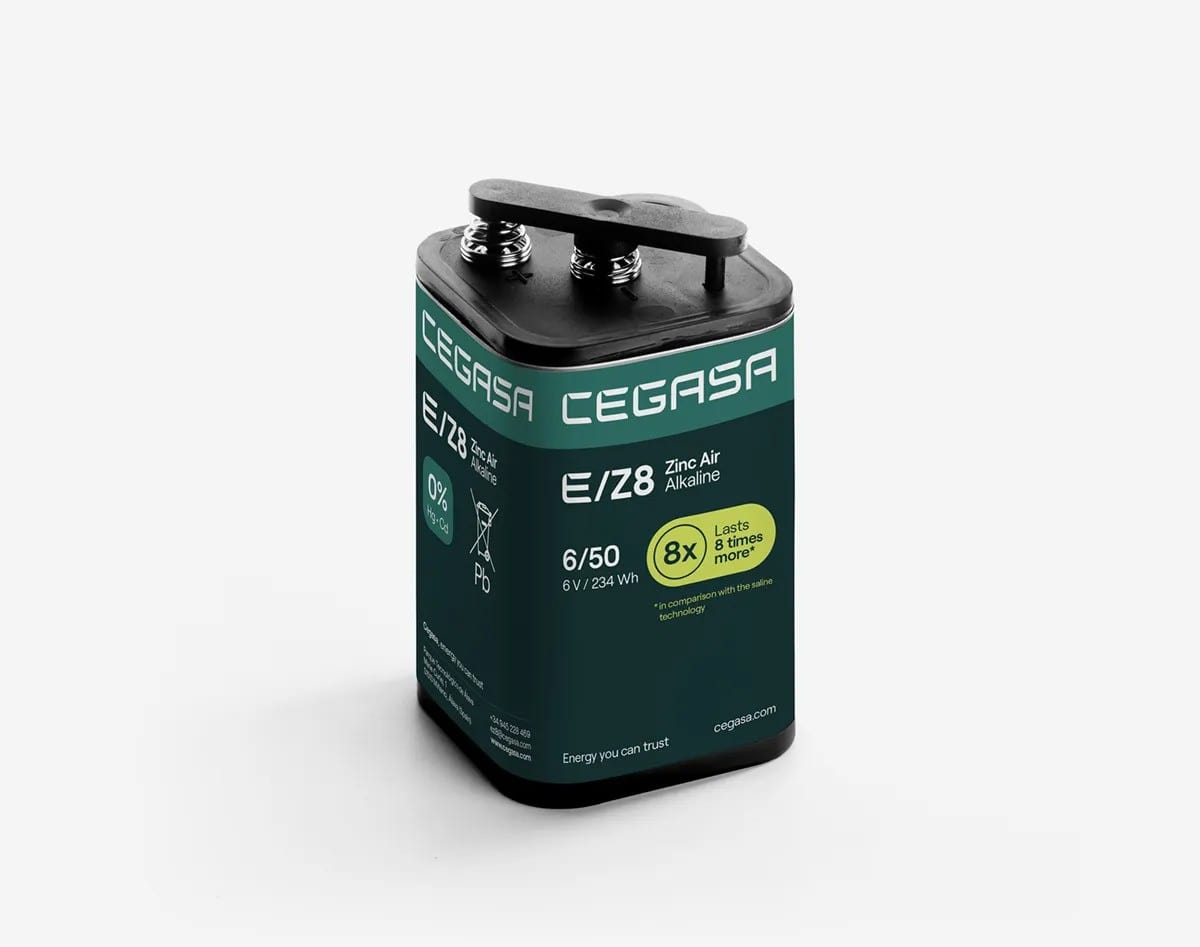Zinc air-alkaline batteries have an innovative energy source that combines zinc with oxygen to generate electricity. They are used in professional applications ranging from telecommunications to railway signal lighting. Elfa is happy to tell you more about this special battery chemistry.
A zinc air-alkaline battery, also known as a zinc-air battery, is a type of battery that uses zinc and oxygen from the air to generate electrical energy. This battery type belongs to the category of metal-air batteries and is distinguished by its unique way of generating energy.
Its operation is based on the oxidation of zinc at the anode and the reduction of oxygen at the cathode, leading to a chemical reaction that produces electrical energy. This technology was developed by Cegasa, an internationally active company with four manufacturing plants and 15 international subsidiaries.
Zinc air-alkaline batteries are used in a variety of applications, including:
The zinc air-alkaline batteries offered by Elfa are from Cegasa. For example, we have the Cegasa E/Z8 6/50.

Cegasa E/Z8 6/50
This battery is a suitable option for applications with low energy consumption and constant power requirements, and which need to remain operational for a long time without intervention or maintenance. Cegasa’s air-alkaline technology provides several advantages, including:

Daan Schutte
Sales Director
Do you have a question?
Feel free to email or call me!
The battery chemistry developed by Cegasa has several advantages that may be of interest to your application.
High energy density: Zinc air-alkaline batteries contain a large amount of energy in a relatively small volume, making them ideal for applications where weight and space are limited.
Low self-discharge: These batteries have a low rate of energy loss when not in use, giving them a longer shelf life and making them suitable for devices that need to operate for long periods without replacement or recharging.
High output voltage: This battery type offers a high initial output voltage, contributing to more efficient operation of electronic devices by providing the required power without the need for complex voltage converters.
Constant output voltage (less than 2% variation): The output voltage of these batteries remains constant for almost the entire life cycle, ensuring reliable performance of devices even when the battery is running low.
Temperature range from -20ºC to +50ºC: These batteries function reliably within a wide temperature range, making them suitable for use in a variety of environmental conditions, from cold to hot climates.
Resistant to humidity (25-85% RH): Zinc air-alkaline batteries are designed to perform well under different humidity levels, making them a good choice for use in areas with varying humidity conditions.
Durable: This battery chemistry contains no heavy metals such as lead or cadmium, making them a more environmentally friendly option compared to some other battery technologies.
Every battery chemistry has its shortcomings. That is why we think the negative aspects should be explained alongside the positives. This way, a proper consideration can be made whether a chemistry is interesting for the application at hand.
Non-rechargeable: Unlike battery types such as lithium-ion batteries, zinc air-alkaline batteries are designed for single use. This can lead to higher replacement costs and more waste.
Sensitivity to atmospheric conditions: Although they can withstand a wide range of humidity levels, extreme atmospheric conditions, such as very high humidity or dryness, can affect the performance and life of these batteries.
Oxygen requirement: Zinc air-alkaline batteries require oxygen from the air to function. In very dense or enclosed environments where air supply is restricted, performance may be reduced.
Less suitable for high-current applications: For devices that require high current over a short period of time, zinc air-alkaline batteries may be less suitable due to their relatively lower peak current capabilities compared to other battery types such as lithium-ion.
Zinc air-alkaline batteries offer a unique and efficient energy source for various professional applications. We believe we can provide you with a suitable battery that perfectly suits your requirements.
Do you have any questions or need advice on the most suitable battery solution for your application? Then don’t hesitate to fill in the contact form!